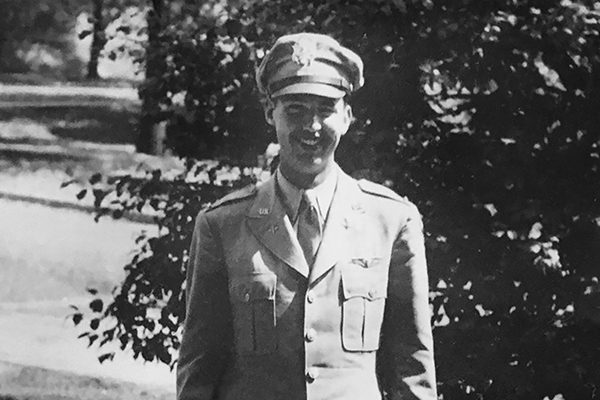J. Bryan Sims, Jr.

“My father really wanted to be a pilot when he joined the armed services. They asked him if he would like to be a glider pilot. He was deployed and he trained on U.S. planes and a Horsa, a British glider. Now these gliders are not what you and I think of as gliders. These were huge troop-carrying gliders. On D-Day, he transported 13 men and a Jeep onto the Normandy coast in a plane without a motor.
When D-Day came, they had this plan for surprise attack. The U.S. gliders were to go in first. Since he was assigned to a British Horsa, he went in after the Americans. He thought he was going to miss all the action.
That turned out to be far from the case. When the tow plane let him go, he started hearing all these noises, which turned out to be German guns. He had to change course and make a left bank and land in another spot. He landed the troops and Jeep and they used a farm house for their quarters.”
– Jeanette Sims, Director of Community Relations, University Advancement
J. Bryan Sims, Jr., remembered by his daughter, Jeanette Sims
Glider pilot J. Bryan Sims made a heroic landing during D-Day.
J. Bryan Sims, Jr., piloted a British Horsa glider during the D-Day Invasion at Normandy as part of the 82nd Airborne Division. His aircraft carried a Jeep with a trailer and 13 men, and he was awarded a medal for his service on that mission. During his landing at Normandy, he needed to make a last-minute maneuver to avoid landing in the heart of a German battalion.
In an interview many years later, Sims described that landing: “I made a low-level turn, which is something our commanders told us not to do, but under the circumstances, I needed to try. Two other gliders landed in that same field, and all their men were captured and spent the rest of the war in a German prison camp.”